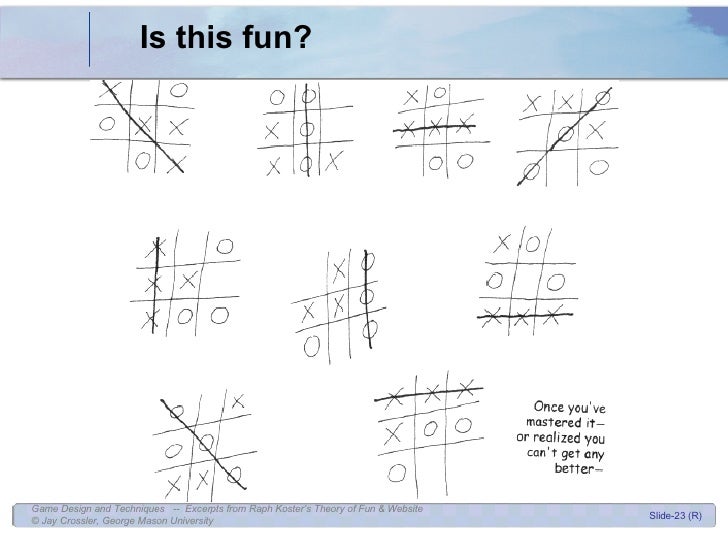


"The argument develops that games are also an art form. Games provide a context for recognising patterns where there is no external pressure to do so this is what people call "fun". They're important because the brain is a highly efficient machine for recognising patterns, delivering pleasure when you learn new patterns. "The basic premise is that games are important. What's more, in reading the book you'll get an inkling of why it operates at many more levels than its cheerful veneer would suggest.

You are going to prefer one of these to the other - I guarantee it. "The first thing you notice when you pick up A Theory of Fun is that there is a sharp division to it: the left-hand pages are text and the right-hand pages are pictures, with very little overlap. "This is an extraordinarily accessible book from one of the few game designers who not only thinks deeply about the design process but is able to articulate it in a form that both enlightens and humbles the reader. A Theory of Fun for Game Design is an excellent, even foundational, read for anyone interested in creating experiences that challenge and engage minds, experiences that inspire learning, experiences that are - in Koster’s definition - fun." "All in all, if you’re interested in a book on learning design, you could do a lot worse than simply reading this book, replacing "player" with "learner" throughout, and evaluating how your own ideas and creations stack up against Koster’s theories. For example: "Not requiring skill from a player should be considered a cardinal sin in game design." Is it any less so with learning design? How many courses have you seen that waste time by teaching at too low a level or by simply not focusing on skill acquisition? At the same time, though, Koster warns against making challenges too great, or of no relevance to something the audience would actually have a reason to learn - again, common pitfalls in learning design. "Even if you’re not interested in creating games, I recommend this book simply for the applicable lessons in learning.


 0 kommentar(er)
0 kommentar(er)
